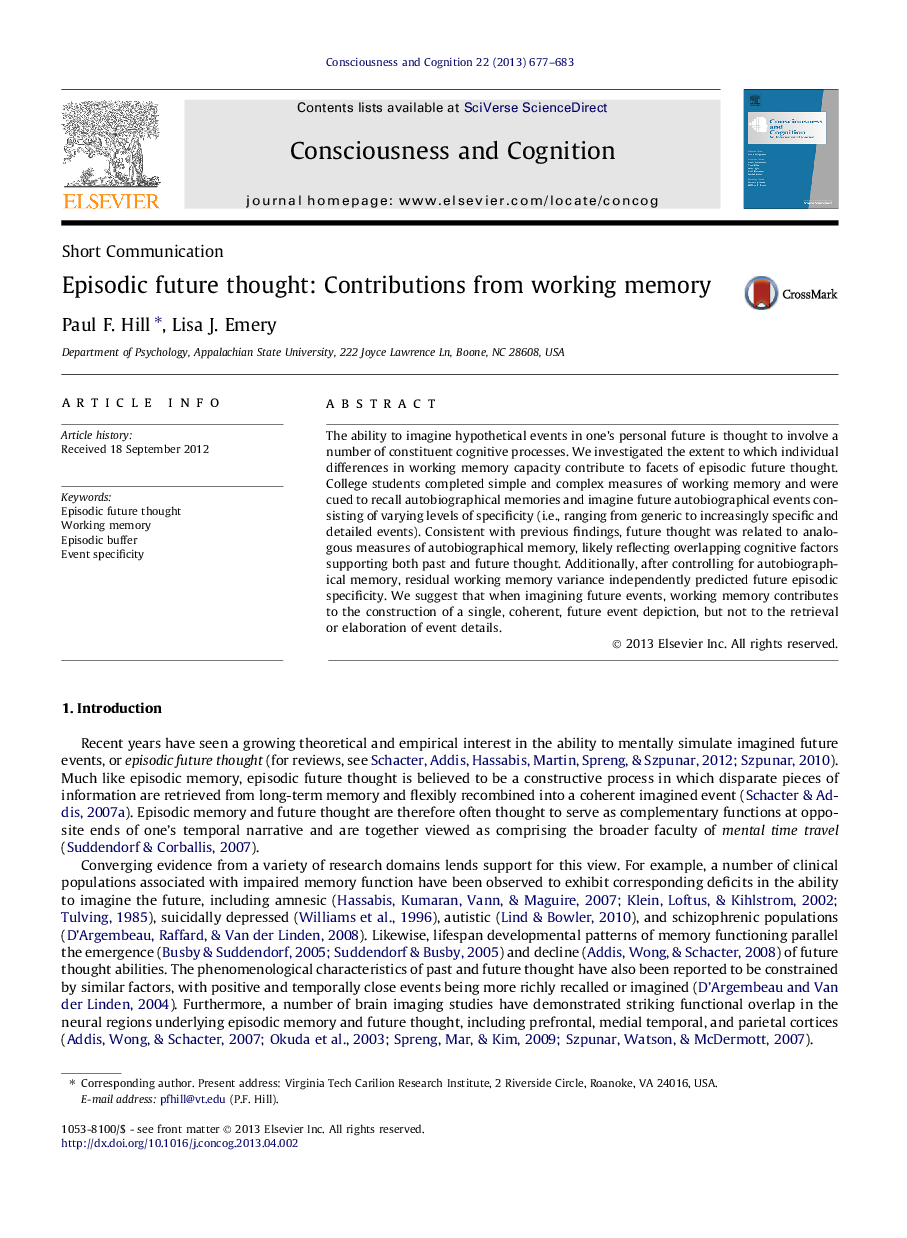| Article ID | Journal | Published Year | Pages | File Type |
|---|---|---|---|---|
| 10458483 | Consciousness and Cognition | 2013 | 7 Pages |
Abstract
The ability to imagine hypothetical events in one's personal future is thought to involve a number of constituent cognitive processes. We investigated the extent to which individual differences in working memory capacity contribute to facets of episodic future thought. College students completed simple and complex measures of working memory and were cued to recall autobiographical memories and imagine future autobiographical events consisting of varying levels of specificity (i.e., ranging from generic to increasingly specific and detailed events). Consistent with previous findings, future thought was related to analogous measures of autobiographical memory, likely reflecting overlapping cognitive factors supporting both past and future thought. Additionally, after controlling for autobiographical memory, residual working memory variance independently predicted future episodic specificity. We suggest that when imagining future events, working memory contributes to the construction of a single, coherent, future event depiction, but not to the retrieval or elaboration of event details.
Related Topics
Life Sciences
Neuroscience
Cognitive Neuroscience
Authors
Paul F. Hill, Lisa J. Emery,
